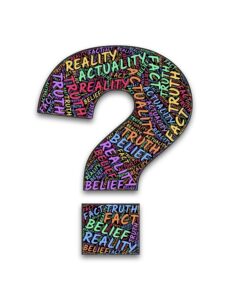Words have energy and power with the ability to help, to heal, to hinder, to hurt, to harm, to humiliate, and to humble.
Yehuda Berg Tweet
Power
What comes to mind when you hear the word “POWER”?
- Royalty?
- The awesome forces of nature?
- Love?
- Fire?
- The pull of the moon?
- God?






As I mentioned in a previous post, studies by researcher Dr. Masaru Emoto have demonstrated that the very words we use (whether written, spoken or internalized) have the ability to affect the molecular structure of water.
Since we are more than 60% water, the potential implications for our health and well-being are profound.
According to H.H. Mitchell, Journal of Biological Chemistry 158, the brain and heart are composed of 73% water, and the lungs are about 83% water. The skin contains 64% water, muscles and kidneys are 79%, and even the bones are watery: 31%.
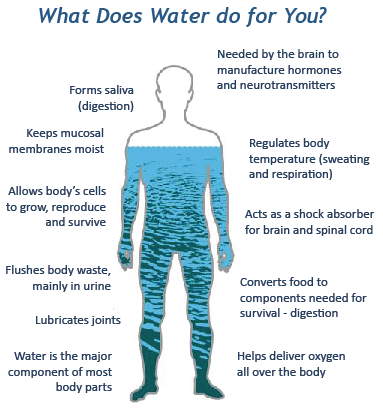
While water is ubiquitous in both the human body and on the planet (71% of the planet is covered by water), the LACK of water has serious consequences since it is crucial to maintaining the health and integrity of every cell in the body.
In the human body, it also helps maintain blood pressure, and even impacts our airways and breathing. (When our bodies are dehydrated, our body restricts our airways in an effort to minimize water loss, which can make asthma and allergies worse.)
And while the human body can go weeks without food, that is not the case with water.
1Water is a critical nutrient for survival. Without water, humans can survive only for days. To be blunt: Water is essential for life.
And water, like anything else, is impacted by energy.
Remember, we are 60-70% water.
The attached video explains more about Emoto’s research and experiments, and the outcomes he reported.
Here are some images from his research of water after it was subjected to specific words, music, action or intentions, then frozen and photographed.
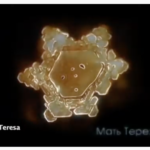
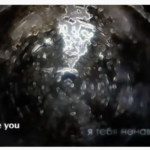
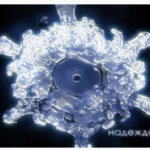
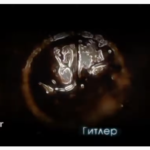
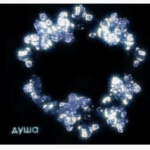

Music also affected the water’s molecular structure.

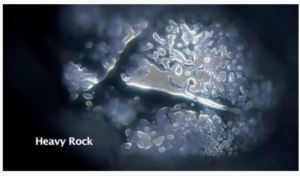
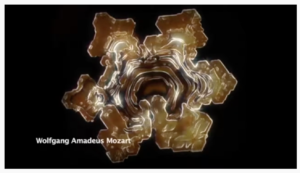
Even different religious faiths showed symmetrical crystalline formations.
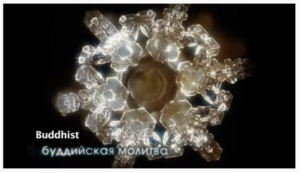
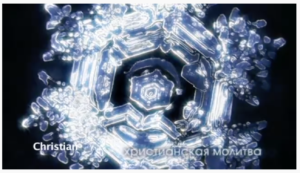
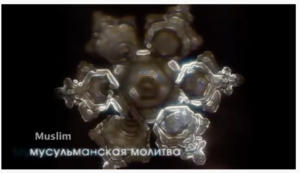
To date, there continues to be conflicting information about the validity of Emoto’s Experiments. Emoto is not a scientist, but a researcher with a doctorate in alternative medicine.
Scientific Journals have records of 2double blind and 3triple blind studies, yet the legitimacy of his work remains contested.
I don’t have the scientific knowledge to argue the matter one way or the other, however I agree with the idea behind the concepts he promotes.
I remain intrigued by the experiments with tainted water and how it was seemingly improved with positive intentions.
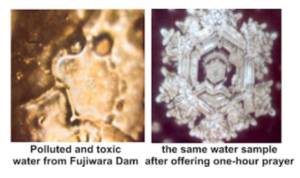
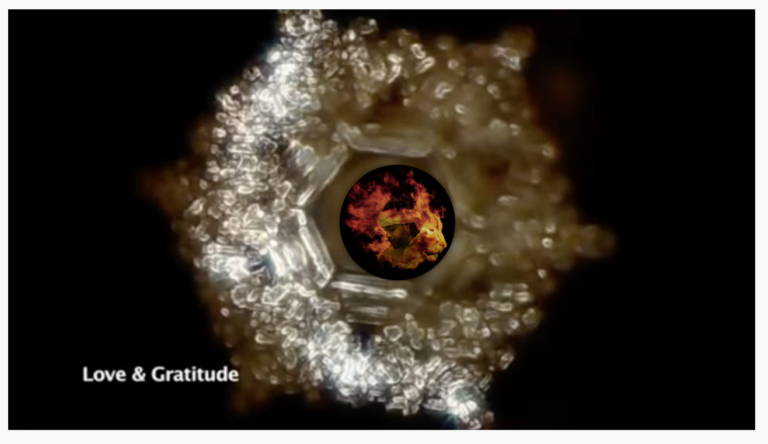
Even more astounding were the results from the two words that he believes conveys the most power to cleanse water.
Love & Gratitude
If we truly consider the implications of his research- that we are influencing our own health with our thoughts, words and intentions, it is not such a far-fetched concept, especially when you consider that research has shown the benefits of meditation and other other intention focused activities (e.g. labyrinth walking).
(You HAD to know I was going to find a way to fit labyrinths into this.)

So, what will you do with this information? Whether or not the science proves to be true, a more focused effort at an attitude of gratitude can’t possibly hurt us, and it may, if Emoto’s research is sound, benefit us more than we imagine.
I’ll close the same way I opened… asking, “What comes to mind when you think of the word ‘Power'”?
This time, however, I hope you have stopped to consider the power of your intentions, your thoughts, and your words.
And if your attitude needs adjusting – start now.

References and Resources:
1Water, Hydration and Health abstract by Barry M. Popkin, Kristen E. D’Anci, and Irwin H. Rosenberg
2 EXPLORE: The Journal of Science & Healing, Volume 2, Issue 5, September 2006, Pages 408-411
3 Journal of Scientific Exploration, Volume 22, Issue 4, December 2008, Pages 481-493



